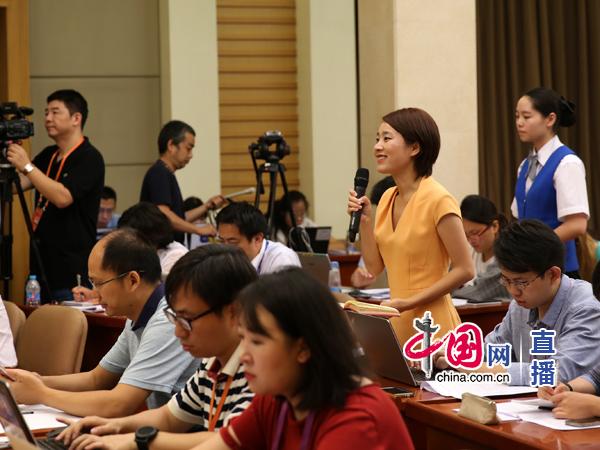Journalism is humanistic, not robotic
- By Earl Bousquet
 0 Comment(s)
0 Comment(s) Print
Print E-mail China.org.cn, September 3, 2017
E-mail China.org.cn, September 3, 2017

Every now and then, a journalist on assignment somewhere does something out of the ordinary that goes far beyond the headlines. It’s hardly ever something taught at journalism school or learned on the job; most times, it’s merely the result of natural human instinct.
Such is the case with Russia Today (RT) and the international broadcaster’s recent celebrated repatriation of stranded orphans in Iraq, where they’d been taken by Chechen parents linked to the former Islamic State (IS).
The RT team on a normal reporting job located the helpless children in Baghdad, and the station launched a "Bring Them Home" campaign that has seen the first five children already reunited with grandparents and relatives.
This has given hope to many more families in Russia – and elsewhere – whose missing children are still stuck in Iraq as a result of being stateless. However, the repatriation mission didn’t happen by accident.
Someone in the team, faced with these children, must have thought about whether the infants had relatives somewhere, and how to reunite them; the idea of a special campaign certainly went far beyond a good programing idea.
It’s worth noting here, the ongoing relationship between the journalist on a reporting mission and the human element within every person.
The bridge built by the Russian broadcaster between Baghdad and Grozny for the stranded orphans indeed sheds light on that infinite relationship between who we are and what we do.
At most journalism schools of yesteryear, the reporter was schooled to go out of the way to be "neutral" and "independent" and to "never take sides" in any conflict they happened to be reporting; indeed, to even be immune from "feeling sorry" about anything seen, heard or felt.
Unfortunately, in pursuit of such neutrality, individual correspondents or teams covering events risk becoming mechanical in their approach, devoid of any heart or sensitivity.
Yet, this robotic application, while generating reports that suit tailored editorial vision, can only be borne by the human inside each person for just so long until something pushes the practitioner over the edge – like the sight of the traumatized infant orphans in Baghdad, so alone and so far from home.
Journalists covering wars are known to do some very human things – from taking greetings back home from dying soldiers, to helping children escape the ravages of conflict.
A little girl airlifted out of Vietnam to Australia in the dying days of the fight against the advancing forces of Ho Chi Minh has grown up to be Cath Turner, a sterling correspondent for the Al Jazeera news agency, who produced an amazing story of her personal return to the land of her birth to locate her parents.
The fact is that, in every case of a media outlet or related institutional group, honoring a journalist or photographer is based on him or her having done something on the job that went far beyond the headlines.
The strictures of the prescribed "neutral," "don’t take sides" and "middle-of-the-road" straightjacket approach to how reporters and photographers should behave on news assignments forces many of good mind to stomach the bad, even if they puke while filtering the reportable from the unpublishable.
In too many cases, the toughest veterans have become over-ripe or overly seasoned in their ability to wear pink-tinted goggles or resort to preferred forms of therapeutic distraction, only "sticking to the story" according to a prescribed narrative that leaves them staring without blinking.
Too few writers, on the other hand, have opted to accept that walking in the middle of the road is always dangerous and it is indeed safer to choose a side, to walk on the right side.
Fortunately, that ancient myth of independence being neutrality is being shattered more often now than ever, as more people everywhere realize that what matters most is not only what is reported, but also what is not.
News has no ideology, events don’t determine themselves – and no reporter can ever tell "the full story."
Some reporters feel they can only best cover issues and events if they can say and show exactly what they see and hear, through the words and images they choose. Others counter that this will never happen, as each media outlet has a mission that will allow it to determine what truths to publish and allow, when and how.
These differences will continue to exist and coexist between those who see reporting as just another job and those who treat it as a humanistic vocation.
What will definitely not continue indefinitely, however, is perpetuation of the myth of divorcing human sensitivities from evidence and experience of inhumanity when it flies in the face and eyes of human beings, including journalists.
Earl Bousquet is a contributor to china.org.cn, editor-at-large of The Diplomatic Courier and author of an online regional newspaper column entitled Chronicles of a Chronic Caribbean Chronicler.
Opinion articles reflect the views of their authors, not necessarily those of China.org.cn.





